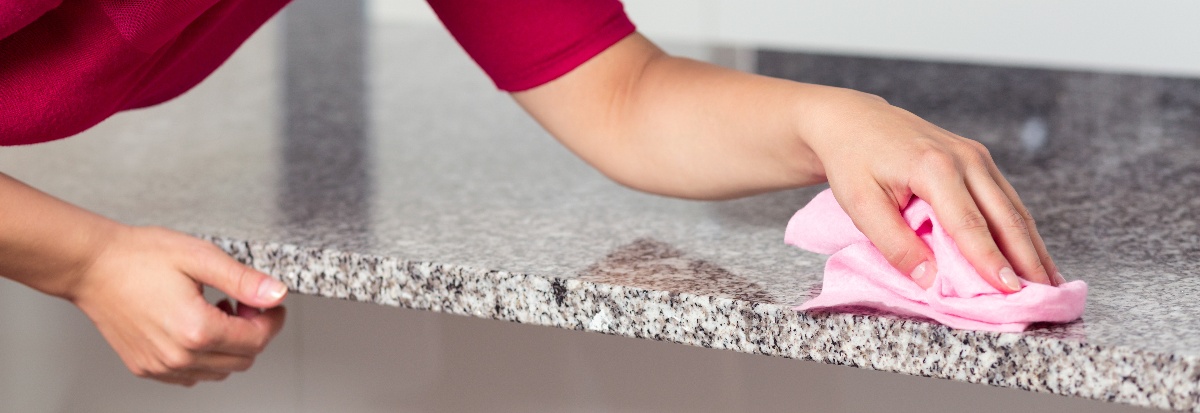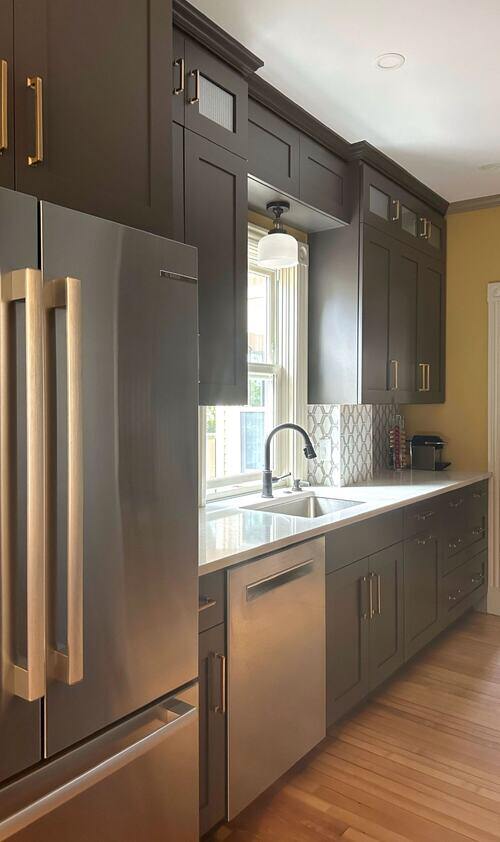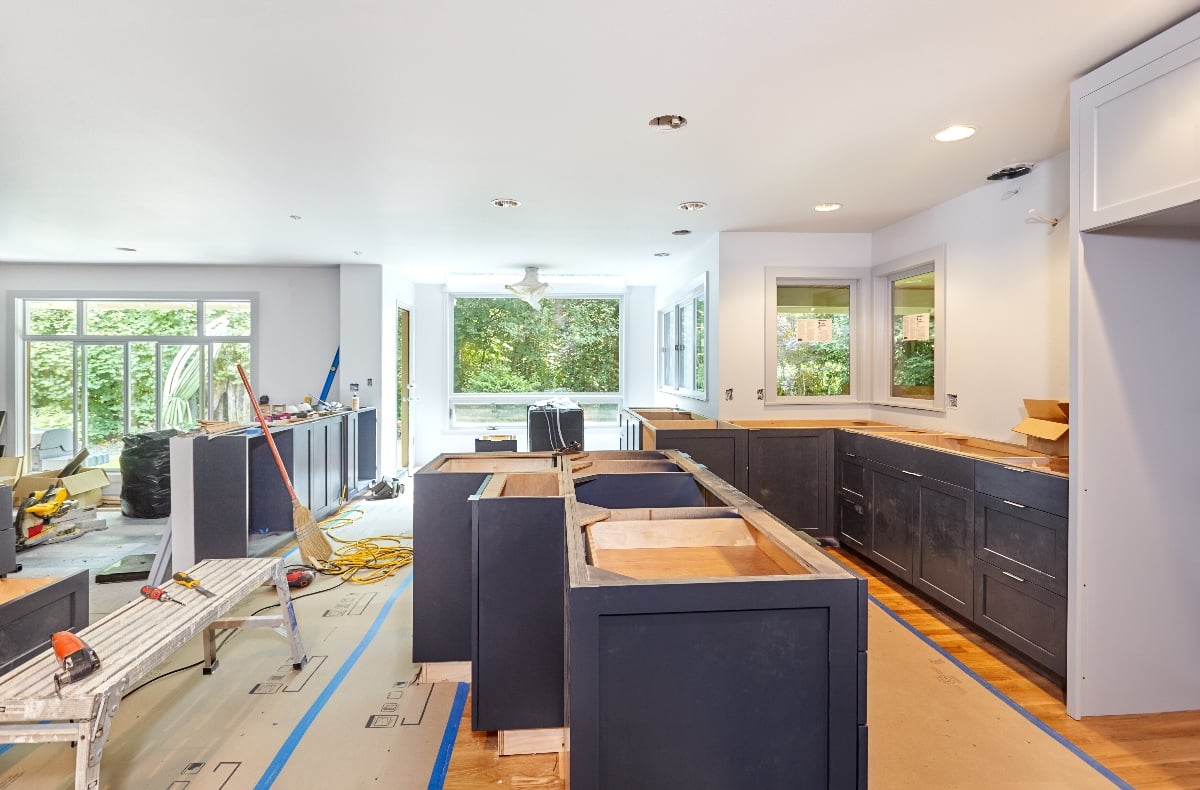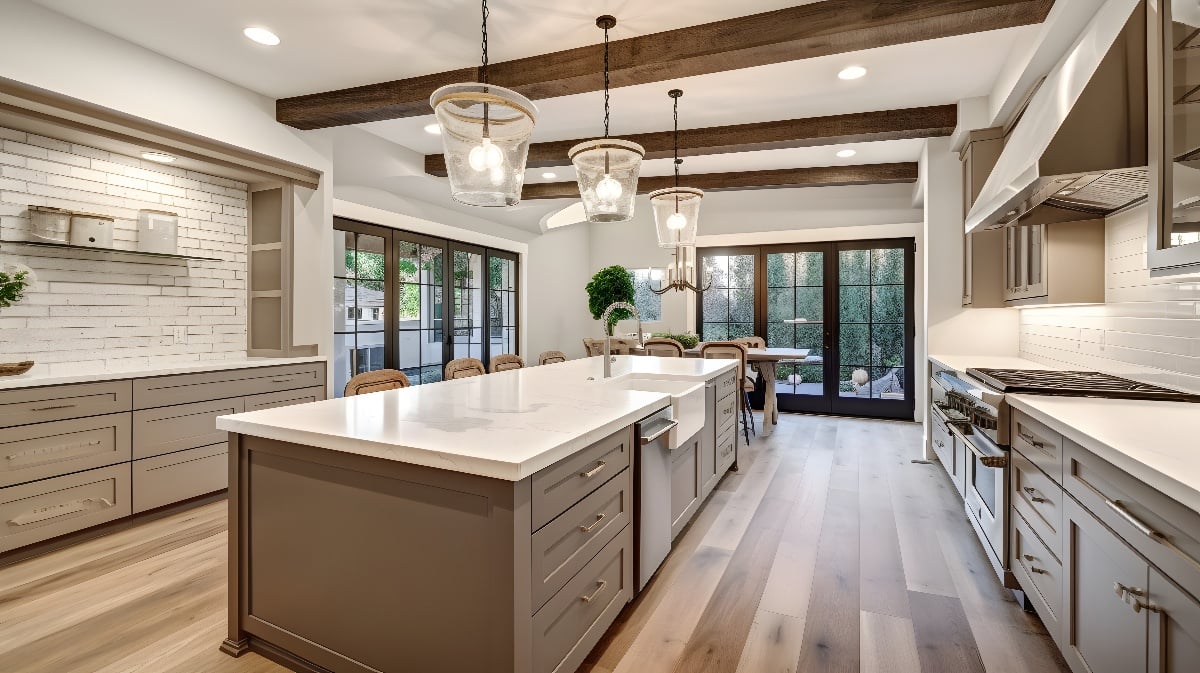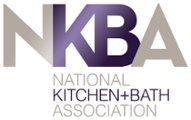Granite countertops are a beautiful addition to any kitchen, bathroom, or laundry room. We choose them not only for their elegant grains and cool surface, but also for their incredible durability. It is very difficult to scratch, nearly impossible to chip, and will only crack if you put a great deal of weight in the wrong place along a counter surface. Even more importantly, granite is a very easy surface to keep clean and beautiful. Unlike wood or even marble, a granite kitchen counter can last for decades, even hundreds of years, if you take good care of it.
However, without proper care, you may see your granite become discolored and the surface damaged by the impact of day-to-day food preparation and family life. The most important thing to know is how to clean your granite countertops. This article will outline out to tackle daily cleaning, tough cleaning jobs, long-term care, and what not to do to keep your granite countertop in perfect condition.
Daily Granite Cleaning Tips
The right way to clean your granite countertops is quite simple: All you need is soapy water and a normal cloth or sponge. Combine hot water (really, any temperature) and a few drops of dish soap on a cloth and wipe down your granite. This will wipe away crumbs, pick up spills and allow you to polish your granite back to a smoothly gleaming surface any day of the week.
Whether you've been cooking, doing crafts, helping your children with homework, or repotting plants on your granite countertop, a little soap and water is the best option to keep your granite clean.
Scrubbing Up Sticky or Dried Spills from Granite
What about really tough spills? How do you clean granite countertops when the mess is sticky, already dried, or otherwise difficult to scrub up? Whatever you do, do not grab your scouring pad or steel wool. At most, use the scrubby side of your sponge or a nail brush.
Then mix up some soapy water and use this as your primary cleaning surface and solvent for the mess. Scrub gently at the granite until the dried or sticky mess breaks and comes away.
If necessary, there are two other methods that are safe to use. First, you can soak the spill under a damp cloth for a few minutes to soften it. Second, you can use a stone-safe scrubbing powder like Borax or Barkeeper's Friend to help scrub the mess without a scouring pad.
Polishing Your Granite and Sealant
You may have heard of special Granite Cleaner. This is a special formula of cleaner designed to polish the sealant layer, not the raw granite. It's a bit of a misnomer. Granite sealant keeps the porous stone safe from moisture and discoloration, but the sealant is weak to acids, so you shouldn't use normal cleaners to sanitize and clean your granite countertops.
To polish your granite sealant and absolutely sanitize the surface, apply a commercial or homemade granite cleaner over the whole surface. Don't forget the sides, bevels, and underside of the lip. To make your own granite cleaner, all you need is one part water, one part isopropyl alcohol, and a few drops of dish soap per cup of mixture.
Resealing Your Granite
Granite is a porous stone. While it is extremely hard and beautiful, it can be penetrated and damaged by spills. To prevent this and make your granite just about impervious to everything, manufacturers and installation teams offer sealed granite. Granite sealant is a special clear-coat layer over the top of your granite that seals the porous surface while preserving the delightful texture and temperature of natural stone.
However, the sealant doesn't last forever. You must have your granite resealed every two to five years to ensure that your granite never takes damage due to poor protection. The sealant itself is also susceptible to acids and corrosives, so you will need to avoid some common cleaning supplies.
What Not to Use When Cleaning Granite
- Vinegar
- Lemon Juice
- Ammonia
- Scouring Pad
- Steel Wool
When cleaning your granite, do not use acids or caustic cleaning chemicals. This is very important to remember, as many people love to clean with white vinegar and/or lemon juice. These are great, safe, natural cleaning supplies for most surfaces - but not countertops. The sealant used on granite and marble, and the resin used to create quartz counters, are all susceptible to acids, so vinegar and other acids should not be used.
You should also avoid ammonia, other caustic chemicals like bleach, or scouring tools like steel wool to prevent damaging the sealed surface.
Discuss Countertop Care with Edesia
Edesia Kitchen & Bath Studio is a design-build team ready to help you with every step of your kitchen or bathroom remodeling project. We can also provide helpful guidelines on how to care for your new installations, such as beautiful granite countertops. Contact us today to discuss your dream kitchen and how to best create or care for it.

